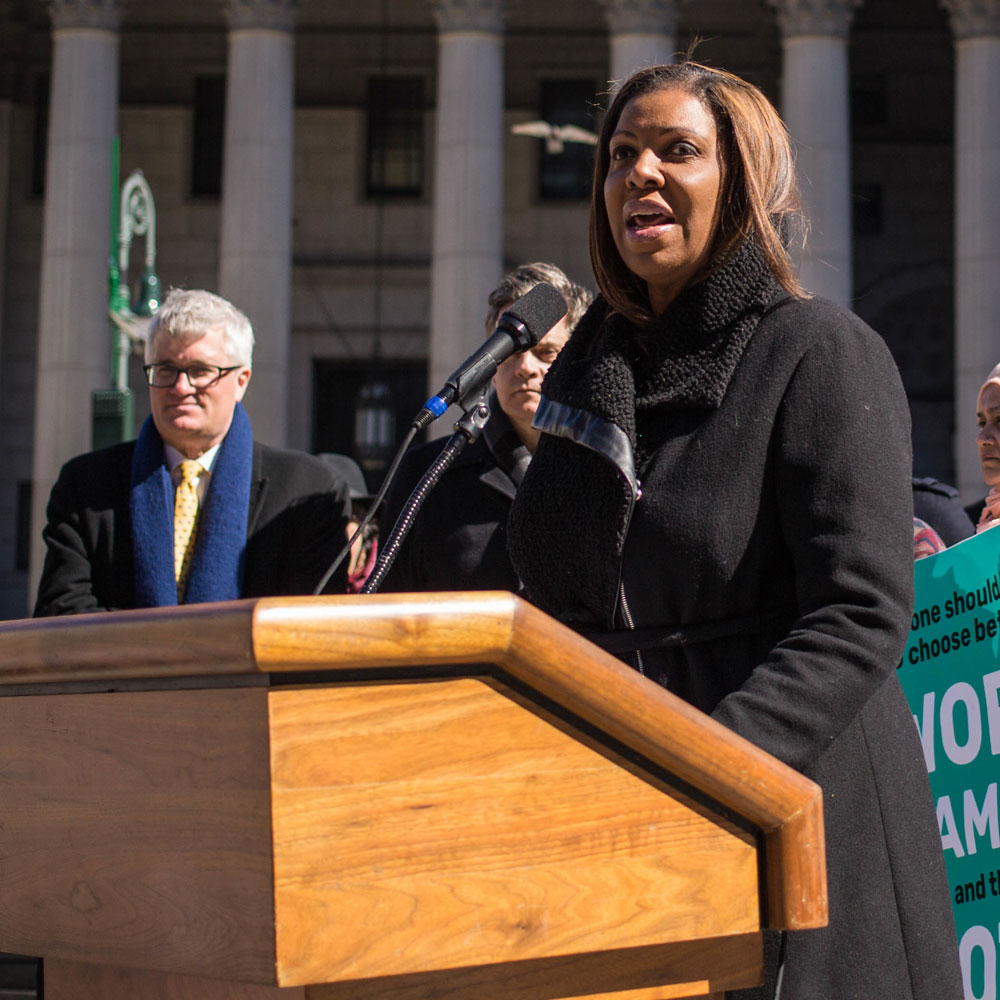
August 6, 2020; Washington Post
NPQ has often wondered about the length of time it takes to bring actions against some of the most flagrant bad actors in the nonprofit sector. A few years ago, a switch took place that some may not have noticed. Starved for funds, the IRS has receded as a regulator. Most of the action in this regard is now at the level of the states. That means it often takes coalitions of state lawmakers to stop nonprofits operating at a national level. In the case of the National Rifle Association (NRA), the attorney general of the organization’s home state is going straight at it to try to shutter it for good on the basis of violations of state law.
Yesterday, New York state attorney general Letitia James filed a lawsuit that seeks to dissolve the NRA for countenancing years of fraudulent behavior on the part of Wayne LaPierre, who has been its CEO for 39 years, as well as three of his top lieutenants. In the suit, James estimates these activities drained approximately $64 million from the organization in the past three years alone. This is something of a joint endeavor; Attorney General Karl A. Racine also announced the District of Columbia’s own lawsuit against the NRA Foundation, which, it charges, allowed the NRA to raid its coffers at will, thus violating its charitable purpose.
Alleging that both state and federal laws were willfully violated to finance leadership’s luxury lifestyles, James is suing for the removal of Pierre and for reimbursement of the purloined cash and to have all four men barred from ever serving in a leadership position at another New York charity.
Before their finances and their reputation took a nosedive, the NRA was a major supporter of Donald Trump’s presidential candidacy in 2016. Though a Trump tweet accuses the “radical left New York” of “trying to destroy the NRA,” the calls that really tipped the organization’s fortunes came from inside the house (see here and here), with information about corruption, self-dealing, and strategic mayhem being shared by staff and board, vendors, and holders of honorary positions—as was the case with Oliver North.
James has referred material she believes comprises another case against LaPierre to the IRS, and she has also promised to refer any criminal aspects of her investigation to the Manhattan district attorney’s office. Among the new things her examination uncovered was that a recent post-employment contract worth $17 million has already been arranged for LaPierre albeit without board oversight.
Sign up for our free newsletters
Subscribe to NPQ's newsletters to have our top stories delivered directly to your inbox.
By signing up, you agree to our privacy policy and terms of use, and to receive messages from NPQ and our partners.
“It is a watershed moment in nonprofit regulation,” says Douglas Varley, who sees this as clear confirmation that the regulation of nonprofits has largely shifted from the federal government to the states.
In response to yesterday’s announcement, the youth-led March for our Lives tweeted an oft-heard message, sending their “thoughts and prayers” to the organization.
The potential downfall of the NRA has a number of implications, but the nonprofit news site The Trace points to one that’s very important for activists to recognize even if it is less apparent in the current coverage: the NRA’s connection with police and police organizations:
As the Center for Responsive Politics recently reported, the NRA’s PAC has been among the leading recipients of contributions from police officers this election cycle. That backing is borne from deep, longstanding ties to police, a constituency the NRA has trained, armed, and enlisted to fight its cultural and political battles.
Police agencies rely largely on instructors certified by the NRA’s Law Enforcement Division, which was established in 1960 to train officers and recruits in firearms use. There are roughly 13,000 active, NRA-certified trainers, according to the gun group’s website. Instructors are largely drawn from the military, the private security industry, and active and retired law enforcement.
The NRA also has directly funded weapons for police departments.—Ruth McCambridge












